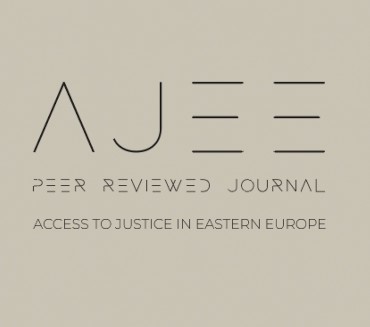Summary: 1. Introduction. – 2. The role of the main civil society actors in crisis areas. – 2.1. The role of young people in preventing extremism and terrorism that leads to war through civil society. – 2.2. The role of women in preventing extremism and terrorism leading to war through civil society. – 3. Community representatives in the prevention of PETW. – 3.1. The role of educators and educational institutions in PETW. – 3.2. Law enforcement services, preventive measures, and community policing PETW. – 3.3. University staff and their role in PETW. – 3.4. The sector of information technology (IT) and social media in their role towards PETW. – 4. Analysis of the adequate possibility of success by civil society in preventing extreme wars. – 5. Partnerships for peace. – 6. Conclusions.
Background: The civil society of different groups of actors, communities, and social formations, registered or unofficial, achieves responsibility and commitment in public life for the protection and promotion of values and common objectives for the good of society. Youth, women, and community representatives are the main actors in civil society that work to prevent and combat deviant phenomena in times of peace and especially during war, due to their influence and ability to promote social changes. Other interest groups, such as the media, law enforcement authorities, universities, researchers, and representatives of the academic world, as well as those involved in the private sector, can make important contributions to prevent wars and post-war events in crisis countries. The civil societies’ capacities in war and post-war countries can be strengthened by exchanging good practices for the programs of international institutions. Countries that have endured this situation, such as Kosova, Bosnja, Hercegovina, and Croatia, identify and support lesser known, reliable groups, creating networks and regional platforms for collaboration, and bringing professionals into contact with researchers and academics to gain results based on practical data and their implementation as soon as possible towards the countries in crisis.
Methods: For this work, a combined methodology was used from the studies of self-accusation and victimisation to the fear of criminality: the method of legal analysis which is used to analyse the legal basis and current legislation that regulates strategies for the prevention of crimes, terrorism, and radicalism. The method of systemic analysis is used to study and analyse the position of legislation in the field and its position in the current legal system. The historical analysis method is used to explain the rates from the past and to compare the new rates with the historical ones. Finally, the researcher analysis method is used to explain the purpose and objectives of the study from the actual perspective of the survey and interview.
Results and Conclusions: The paper is only the beginning of the research and analysis into the role of civil society in preventing and fighting extremism and terrorism that leads to harsh wars. The case studies and analysis will primarily encompass countries that have suffered from the following: the wars during 1990 to 1999 in the former Yugoslavia, the war in Syria, the unrest in Libya, and the current war in Ukraine. These will be part of the publication in the future.
The main topics will cover the state of a country before, during, and after a war, the level and extreme inertia that led to terror and war, the consequences after conflicts, material and human trafficking, corruption and organised crime, humanitarian problems and refugees, and, finally, the role of civil society in this field, especially in light of human rights and freedom.
Understanding the role of civil society in preventing, combating, and protecting human values is the first step in efforts towards national and comprehensive strategies to address the fear of horrific attacks from extremism and terrorism at war. This paper aims to provide good practices in the post-crisis country for crisis experiences, advance ideas and adequate methods of success, as well as give various suggestions and descriptions of their connection, describing the civil society that should follow, including educational programs, both preventive and rehabilitative with a positive impact on the community.
It is important that civil society is given criteria, political issues, financial resources, and guidelines to succeed in its reasoning, and that its role appears as a reason to promote the adequate company in society. Prevention, combat, rehabilitation, and resocialisation programs in conflict and post-conflict countries, as a result of wars, are long-term and complex. Their success depends largely on the promotion of good practices and the sharing of lessons learned and resources in different contexts, both nationally and internationally. Through this work, we aim to contribute to this discourse by highlighting international organisations, such as the OSCE, UN, IOM, and the EU, and the role that civil society can and will play in making communities safer and more resilient to the challenges in the future, after wars end, as a result of extremism caused by wars in the 21st century.

